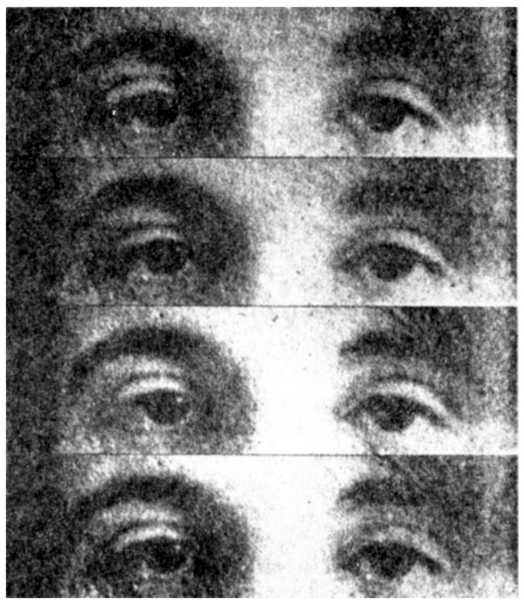French Literature: A Very Short Introduction (16 page)
Read French Literature: A Very Short Introduction Online
Authors: John D. Lyons

The heritage of Mallarme
Proust's contemporary Paul Valery (1871-1945) was of a radically
different aesthetic temperament. In contrast to the former's
lengthy novel with its notoriously long and involved sentences
(some spreading over several pages), Valery's texts, both in
prose and verse, are all very spare. Among the more unusual
protagonists of French literature is his Monsieur Teste, the hero
of a series of texts - one could call them prose poems or essays -
in which Valery explores his intellect in the form of an alter-ego,
whose name evokes both `head' (tete, or teste in older French)
and `text' (texte). Likewise in his verse poems, Valery represents
a self, a moi, that borders on the metaphysical. The closest heir
of Mallarme, and the last great Symbolist poet, Valery's single
greatest poetic achievement is The Graveyard by the Sea (Le
Cimetiere marin,1920). Like much contemporary painting (one
might think of Kandinsky), this verse poem in 24 stanzas evokes
an event or scene that is then distilled to its essence, so much so
that the physical incident is scarcely glimpsed. In The Graveyard
by the Sea, the poet seems to describe an epiphany that he has
during hours of thought while looking out at the Mediterranean
from a cemetery. The question that he ponders is the relation
between body, mind, and time (themes that run throughout the
Teste texts also), with a concluding acceptance of the body and
the demands and pleasures of physical life. More immediately
accessible is the brief poem `The Footsteps' (Les Pas), published a
year after The Graveyard.
Les Pas
The Footsteps
Translated by David Paul
`The Footsteps' gives a very good idea of the way Valery plays on the
threshold of the physical and the metaphysical in much of his poetry.
The poem is addressed to a pure person'. Is this a woman or a spirit?
Is the `divine shadow' literally divine, or is this hyperbole? Are the
footsteps meant to be actual footsteps, or are they the metric feet of
the poem itself? Or are the pas the poet's heartbeats (he says that his
heart is nothing other than these pas), which he can hear because all
is silent around him? And when those pas cease, it seems that the
poet, as well as the poem, will come to an end. These are the kinds of
questions that Valery's poems provoke and that create opportunities
for patient meditation, which for Valery was a distinct superiority of
poetry over the 19th-century novel.
Surrealism
Valery's acquaintance Andre Breton also reacted against the novel
as genre, and Nadja (1928; revised edition 1962) is one alternative
that he proposed. Breton's work is significant because of his role as
leader of the Surrealists, a movement that reflected the continentwide hunger for something new to replace both 19th-century
literature and art and also the social order that had led to the
butchery of the First World War. French Surrealism appears in
the context of such other movements as Italian Futurism (already
launched before the war but with its major impact in the decades
thereafter), British Vorticism, Soviet Constructivism, the German
Bauhaus, and Swiss and French Dadaism. Andre Breton was the
author of the two Surrealist Manifestos (in 1924 and in 1929), thus becoming the public leader of the most significant of these
movements (by `movement' here is meant a group of writers
who designate themselves as such and advocate a set of aesthetic
and social doctrines). Breton advocated giving priority to the
imaginative life and considered the `real' life as most people know
it to be only a pale reflection of the much more real (surreel,
`above real') life that was to be achieved upon the overthrow of
narrowly rationalist forms of thought and the rejection of the
limited options of adult life. In such a limited, ordinary person,
dominated by practical concerns:
All his gestures will be paltry, all his ideas narrow. He will only
consider, in what happens to him and can happen to him, only
the links to a mass of similar events, events in which he did not
participate, missed events.
(Toes ses gestes manqueront d'ampleur; toutes ses idees, d'envergure.
Il ne se representera, de ce qui lui arrive et pent lui arriver, que
ce qui relie cet evenment a unefoule d'evenements semblables,
evenements auxquels it n'a pas pris part, evenements manques.)
The life of the imagination, which most of us have lost, is cruelly
rich in possibilities. In an apostrophe, Breton exclaims, `Dear
imagination, what I love above all about you is that you do not
forgive' (Chere imagination, ce que j aime surtout en toi, c'est que
to ne pardonnes pas). The world of imagination, for Breton, is not
in the elaborate and carefully wrought creations of the novelists
and poets of the tradition but, instead, in the everyday world that
surrounds us without our noticing it. Breton was an early and
enthusiastic reader of Sigmund Freud (as one can see from the
term `missed events' - coined on the model of the French term
for what we call the lapsus or `Freudian slip', an acte manque), an
admirer of Alfred Jarry's Ubu Roi (1896) and of Lautreamont's
Chants de Maldoror (printed in 1868 but little known until the
1920s), and he promoted the concept of `automatic writing'
(ecriture automatique), first practised in the collection of poetic prose Magnetic Fields (Les Champs magnetiques, 1919, with
Philippe Soupault), as a way of breaking out of traditional forms
and rationalist thinking.

13. `Les yeux de fougere', photographic montage illustration for Andre
Breton's Nadja (1928)